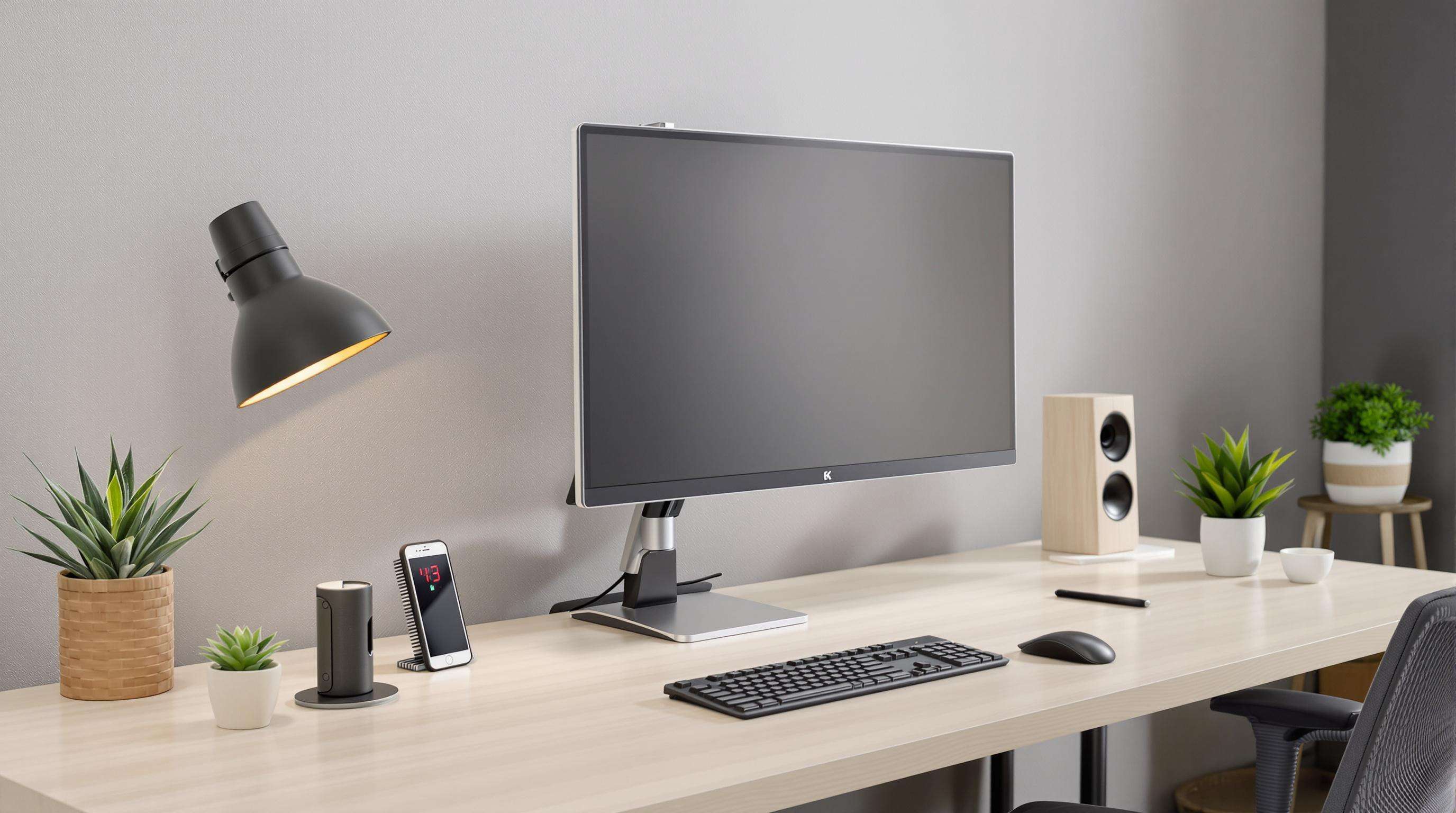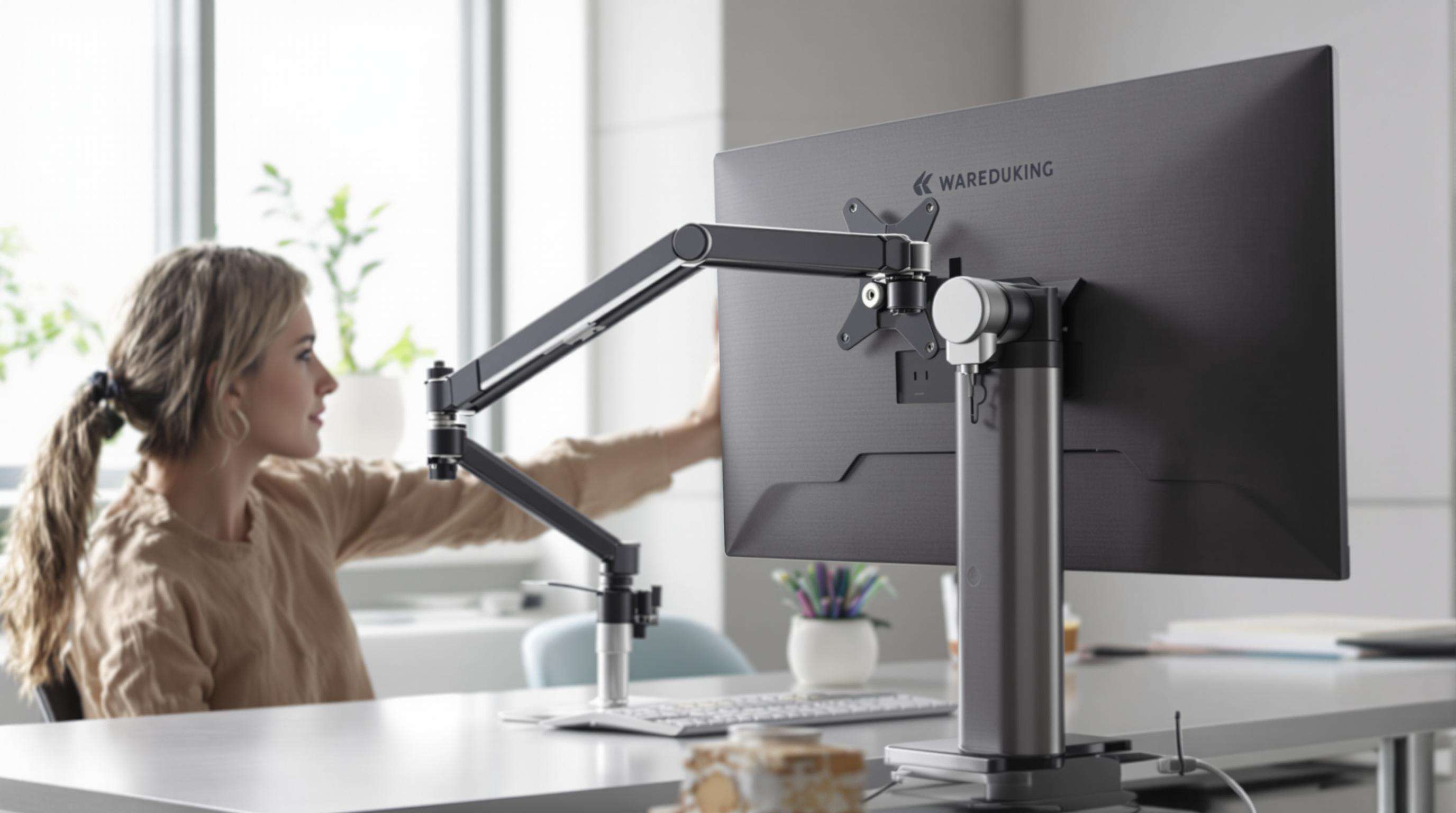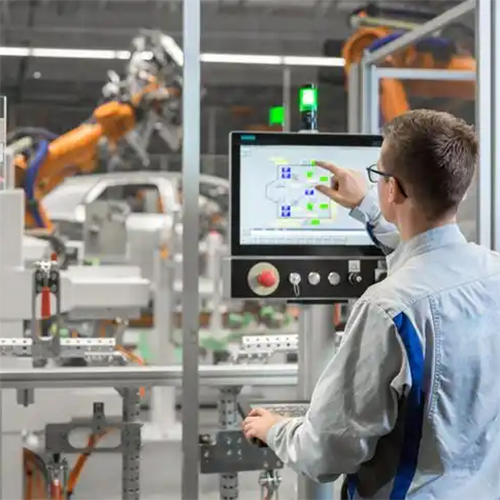The term VESA mount support basically means those standard screw hole arrangements we see on all-in-one computers these days. Most commonly they come in either 75x75mm or 100x100mm sizes, which makes it possible to attach monitors securely to various stands, wall mounts, or even adjustable desk setups. Created back in the day by an organization called the Video Electronics Standards Association, this mounting system put an end to those quirky brand-specific designs that made everything incompatible. The real benefit for companies comes from how much cleaner workspaces become when using VESA compatible equipment. According to some research from 2023 by the Ergonomics Research Group, offices can cut down on clutter by around 30 to 40 percent compared to regular desktop bases. Plus, workers don't have to worry about different mounting requirements as new devices get introduced over time.
Most all-in-one desktops use one of two standard VESA configurations:
| Pattern | Typical Use Case | Weight Capacity | Screen Size Range |
|---|---|---|---|
| 75x75mm | Compact models (≤24") | ≤15 lbs | 18–24 inches |
| 100x100mm | Larger/workstation units | ≤25 lbs | 24–32 inches |
The 100x100mm pattern provides greater stability for adjustable arms, while 75x75mm is ideal for space-constrained environments. Always verify your device’s VESA pattern before purchasing a mount—mismatched brackets can lead to instability or damage.
Non-VESA models may require third-party conversion kits, but these can void warranties. Prioritize VESA-certified all-in-one desktops to futureproof office layouts and simplify ergonomic upgrades.

Studies on workstation efficiency show that VESA mounted all in one desktop computers can free up around 40 percent of desk space when compared to regular setups ErgoTech reported back in 2023. When these systems are attached to monitor arms or mounted on walls, they get rid of those big bulky stands without making it hard to reach ports or adjust settings. Most major computer makers have started using standard VESA mounting holes measuring either 75 by 75 millimeters or 100 by 100 millimeters across approximately 87 percent of their business focused all in one models. This makes them work well with those compact monitor arms that help save space in offices. The connection between proper ergonomics and efficient workspace design continues to grow stronger as more companies adopt these space saving solutions.

Getting that computer screen at the right height makes a real difference for office workers. According to Workplace Health Journal from last year, proper positioning cuts down on neck strain by around 34 percent and eye fatigue drops about 28 percent too. Most monitors now come with VESA mounts that give about 12 inches of vertical movement plus full 180 degree rotation. That means folks can adjust whether they're sitting down or standing up during work hours. The tilt function usually ranges between +15 degrees and -5 degrees which helps eliminate annoying glare while keeping the screen at just the right angle. People find themselves adjusting their setup several times throughout the day as lighting changes or tasks shift, making it easier to maintain good posture without constantly straining their eyes or back.
According to a recent Remote Work Trends Report from 2024, when they looked at 1,200 people working hybrid schedules, around two thirds said their tasks got done quicker once they switched over to those all-in-one desktops mounted via VESA standards. These setups take up less room overall, which means cables aren't everywhere anymore and there's actually some breathing space left for other gadgets like extra monitors or docking stations. Financial departments have seen some pretty impressive results too. One company's accounting team saved about 22 minutes each day just by attaching their all-in-ones to those adjustable arm mounts. That might not seem like much at first glance, but over weeks and months it adds up significantly.
Most top business desktops these days come ready for VESA mounts right out of the box. Take HP's EliteOne, Dell's OptiPlex All-in-One, and Lenovo's ThinkCentre series for instance - according to the latest 2024 Business Desktop Report, around 8 out of 10 models actually support those standard 100x100mm mounting patterns. Why does this matter? Well, companies love being able to wall mount their computers or attach them to monitor arms, especially in those modern open plan offices where every square inch counts. The Lenovo ThinkCentre M90a Gen 5 is a good example of what we're talking about here. It packs solid desktop performance while still having those standardized mounting holes that make sense when someone needs multiple screens for tasks like financial analysis or graphic design work. Makes life easier for IT departments trying to manage workspace constraints without sacrificing computing power.
Most Apple iMacs along with those tiny Intel NUC computers don't come with built-in VESA mounts on around 9 out of 10 models these days. But there are workarounds available. Third party brackets that attach directly to the back can solve the problem for many users, and they're usually rated to hold between 15 to 25 pounds. The bigger 24 inch iMacs need special conversion kits though, which require installing four M4 screws to get that standard 200 by 200 mm mounting pattern. Just keep in mind that once installed, the original stand won't work anymore since it loses the ability to tilt forward and backward as it normally would.
Universal VESA mounts range from around $25 to $85 while heavy duty monitor arms can handle up to 30 pounds, making it possible for offices to upgrade their old setups. Take the Ergotron HX pivot arm for instance it works great with those 27 inch all-in-ones when combined with either 3M VHB adhesive strips or some low profile mounting hardware. According to research done in actual office environments, switching to these kinds of mounts cuts down on desk space usage by roughly 40%. Just keep in mind that before installing anything, check how deep those screws go since most are between 8 and 12 millimeters long. Going too deep might mess with what's inside the computer itself.
Begin by gathering essential tools:
Ensure the mount’s material (steel or aluminum) and weight capacity match your all-in-one desktop’s specifications. For example, a 24-pound device requires a bracket rated for at least 30 pounds to accommodate accessories safely.
For non-VESA models, UL-certified third-party adapters can retrofit compatibility. A 2023 workspace efficiency study found properly mounted all-in-one desktops reduce desk clutter by 40% while improving posture in 72% of users.
Most manufacturers now build those standard VESA mounts (the 75x75mm and 100x100mm sizes) right into their new all-in-one desktops these days, according to that latest Office Tech Report for 2025. Around 9 out of 10 models have them, which makes sense when we think about how popular those adjustable monitor arms and modular workstations have become in modern offices. Looking at what's happening on the management side, about two thirds of IT folks say they really value this modularity stuff. They want their systems to easily connect with extra gear like webcams and docking stations through those VESA mounts. And honestly, who wouldn't? The whole trend is making offices much more adaptable spaces where workers can just flip their screens from group meetings to solo tasks without breaking stride.
The shift toward hybrid work is causing a pretty big jump in how many people are buying those space saving all in one desktops these days. We're talking about around 45% more compared to last year according to the latest Workspace Innovation Study from 2024. Workers today want their desks to look neat and organized, so they're looking for setups that hide wires and have built in wireless charging stations. These kinds of features come standard on higher end models that mount onto VESA compatible stands. Facilities managers tell us something interesting too: when they put thin profile computers together with adjustable monitor arms, there's a noticeable drop in ergonomic issues. That makes sense because now each person can position their screen exactly where it works best for them instead of being stuck at whatever height the desk happens to be.
A VESA mount refers to a standard screw hole arrangement that allows monitors to be securely attached to various stands or mounts. It's important for all-in-one desktops as it helps to reduce workspace clutter and standardizes mounting requirements.
The most common VESA patterns in all-in-one desktops are 75x75mm and 100x100mm. These patterns are used to accommodate different screen sizes and weight capacities.
To check VESA compatibility, you can look at the technical specifications for terms like “VESA MIS-D” or “VESA MIS-F,” measure the rear panel for hole spacing, or consult the manufacturer's resources.
Yes, there are third-party adapters and conversion kits available for non-VESA models, but these could void warranties. Always prioritize VESA-certified desktops for easier upgrades.
You’ll need a VESA-compatible mount, high-grade screws, a Phillips screwdriver or hex key, spirit level, and possibly a stud finder for wall installations.
